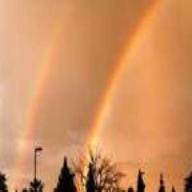我想知道, 全世界的金錢加起來有多少?
是不是把每人銀行戶口的錢加起來就是了? 例如香港有多少港元? 美國有多少美元?
如果連同其他財富, 如樓宇、土地、物業、公司市值等, 又有多少?
全世界金錢的總量, 是個穩定的數字還是會隨著時間而變化?
金錢總值?
2007-05-13 8:14 am
回答 (2)
2007-05-22 8:38 pm
✔ 最佳答案
Your requestion requires a long discussion and there is no definite answer of how much the total money.Read the following article and you may have a beginning to prepare the discussion:
What is Money
The Economics Glossary defines money as:
Money is a good that acts as a medium of exchange in transactions. Classically it is said that money acts as a unit of account, a store of value, and a medium of exchange. Most authors find that the first two are nonessential properties that follow from the third. In fact, other goods are often better than money at being intertemporal stores of value, since most monies degrade in value over time through inflation or the overthrow of governments.
So money isn't just pieces of paper. It's a medium of exchange that facilitates trade. Suppose I have a Wayne Gretzky hockey card that I'd like to exchange for a new pair of shoes. Without the use of money, I have to find a person, or combination of people who have an extra pair of shoes to give up, and just happen to be looking for a Wayne Gretzky hockey card. Quite obviously, this would be quite difficult. This is known as the double coincidence of wants problem:
[T]he double coincidence is the situation where the supplier of good A wants good B and the supplier of good B wants good A. The point is that the institution of money gives us a more flexible approach to trade than barter, which has the double coincidence of wants problem. Also known as dual coincidence of wants.
Since money is a recognized medium of exchange, I do not have to find someone who has a pair of new shoes and is looking for a Wayne Gretzky hockey card. I just need to find someone who is looking for a Gretzky card who is willing to pay enough money so I can get a new pair at Footlocker. This is a far easier problem, and thus our lives are a lot easier, and our economy more efficient, with the existance of money.
As for what constitutes money and what does not, the article How much is the per capita money supply in the U.S.? gives the following definition, provided by The Federal Reserve Bank of New York:
"The Federal Reserve publishes weekly and monthly data on three money supply measures -- M1, M2, and M3 -- as well as data on the total amount of debt of the nonfinancial sectors of the U.S. economy... The money supply measures reflect the different degrees of liquidity -- or spendability - that different types of money have. The narrowest measure, M1, is restricted to the most liquid forms of money; it consists of currency in the hands of the public; travelers checks; demand deposits, and other deposits against which checks can be written. M2 includes M1, plus savings accounts, time deposits of under $100,000, and balances in retail money market mutual funds. M3 includes M2 plus large-denomination ($100,000 or more) time deposits, balances in institutional money funds, repurchase liabilities issued by depository institutions, and Eurodollars held by U.S. residents at foreign branches of U.S. banks and at all banks in the United Kingdom and Canada."
So there are several different classifications of money. Note that credit cards are not a form of money.
Note that money is not the same thing as wealth. We cannot make ourselves richer by simply printing more money, as shown in the article Why Not Just Print More Money?.
Here are a few more articles that will aid in your understanding of money:
What is Deflation and How Can it Be Prevented?
Why Does Money Have Value?
How Much is the Per Capita Money Supply in the U.S.?
What is the Demand For Money?
Are Credit Cards A Form Of Money?
Expansionary Monetary Policy vs Contractionary Monetary Policy
Why Not Just Print More Money?
What Was The Gold Standard?
When Stock Prices Go Down, Where Does the Money Go?
2007-05-23 1:57 am
ask the Fortune Magazine
收錄日期: 2021-04-18 22:08:20
原文連結 [永久失效]:
https://hk.answers.yahoo.com/question/index?qid=20070513000051KK00078

